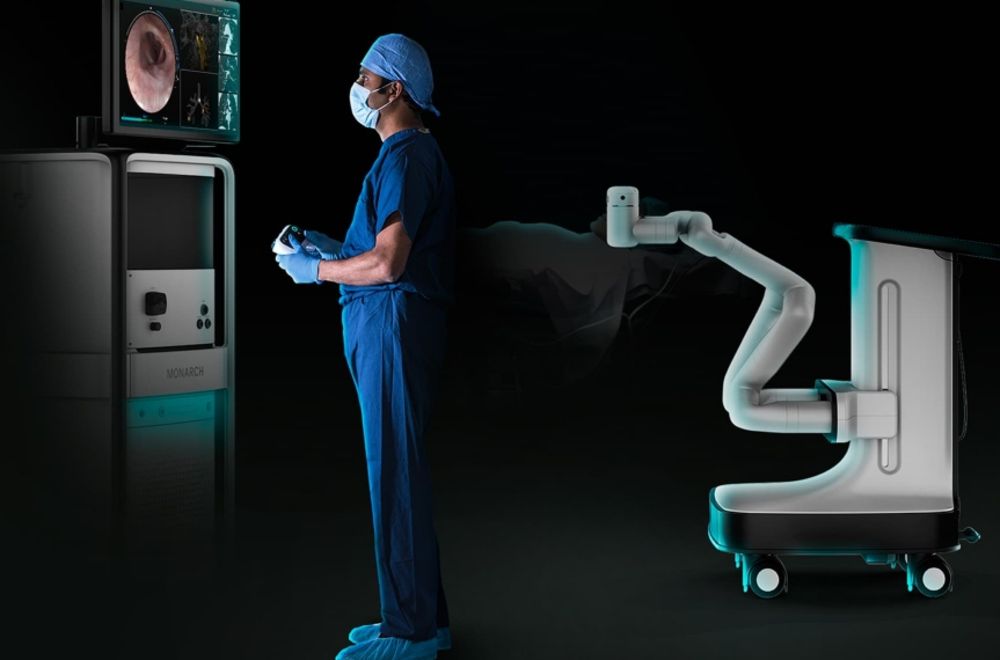
J&J Bets Big in Robotic Surgery (OrthoFeed)
J&J’s recent blockbuster deal for Auris is really just the latest in a series of moves the diversified market giant has made in positioning itself in the exploding field of robotically-enabled surgery. From Verb, its joint venture with Verily, to Orthotaxy to, now, Auris, J&J is developing and advancing what the company calls “a comprehensive digital surgery experience.”
The announcement this past February that Johnson & Johnson had acquired robotic start-up Auris, founded by Fred Moll, a pioneer in the field, came as an almost audible blast in the medtech industry. It’s not entirely clear whether the noise was caused by fireworks over the $3.4 billion price tag or by a resounding affirmation of the importance of robotically-enabled surgery broadly speaking. But it seems as if few people in the medtech industry haven’t spent the last several months talking about the deal.
And with good reason. As we’ve noted in other contexts, robotics is today arguably the hottest of all technology spaces in medtech and perhaps the most chameleon-like. New surgical robotics start-ups seem to launch every month, and not just in the US, but in Europe, and China as well. At the same time, companies that wouldn’t in the past have described their technology as a robot are now jumping on the bandwagon, branding anything with a moving part as part of the robotics revolution.
What a change from 15 or 20 years ago, when Intuitive Surgical Inc. launched its first daVinci system and seemed to have the field to itself. Indeed, the early years of robotics companies hardly would have suggested the kind of interest and success we’re seeing now. Early companies struggled and, in many cases, failed to catch on, victims of complex technology and surgeon skepticism. Even Intuitive’s success was built on a fortuitous switch to prostate surgery and other, more recent success stories, most notably Mako Surgical, wandered for years in the wilderness before physicians and industry caught on. (See “Intuitive Surgical: As Robotics Heats Up, Can the Market Leader Stay Ahead of the Pack?” MedTech Strategist, December 19, 2018 and “Intuitive Faces the Future of Surgical Robotics,” MedTech Strategist, January 16, 2019.)
Some if not much of robotics’ struggles in those early years was due to the skepticism and indifference of the large surgical and orthopedic multinational medtech companies, who were slow to embrace the technology for a wide variety of reasons—IP concerns, customer skepticism, and uncertainty with what is, after all, a capital-equipment business model. Over the past half-decade, however, that cool indifference has turned into M&A heat; virtually every orthopedic/spine company placed major bets in the 2000s, while giants like Medtronic plc and J&J are now positioning themselves for a multi-front war, witness Medtronic’s recent deal for Mazor and its internal development efforts around a surgical robot. (See “Under the Lens: Mazor Robotics Bets on Million-Dollar Spine Robots,” MedTech Strategist, February 13, 2015.)
No company, arguably, has been more aggressive in establishing a foothold in robotics than Johnson & Johnson, for which the Auris deal is only the latest of significant moves, beginning with Verb Surgical Inc., its joint venture with Verily Life Sciences Inc., the life sciences business of tech giant Alphabet Inc./Google Inc., and last year’s acquisition of orthopedics robot, Orthotaxy. Over the last several years, the company has been formulating a vision that positions robotics in a broader context, embracing both digital and more conventional medical technology, all part of what J&J officials call “a comprehensive digital surgery experience that serves the full range of therapeutic areas and patients we support.” (See “Finding Meaningful Value in Medtech: An Interview with J&J’s Alex Gorsky, Part 2,” MedTech Strategist, April 23, 2018.)
By David Cassak | MedTech Strategist
Image Credit: Johnson & Johnson
